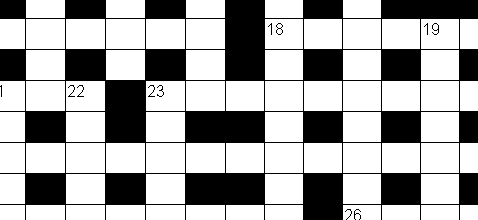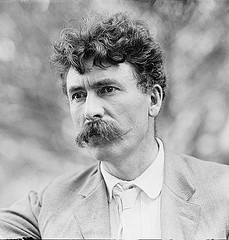J.B.S. Haldane retained his wit even while undergoing cancer treatments — he wrote this poem in a hospital in 1964:
I wish I had the voice of Homer
To sing of rectal carcinoma,
Which kills a lot more chaps, in fact,
Than were bumped off when Troy was sacked.
Yet, thanks to modern surgeon’s skills,
It can be killed before it kills
Upon a scientific basis
In nineteen out of twenty cases.
I noticed I was passing blood
(Only a few drops, not a flood).
So pausing on my homeward way
From Tallahassee to Bombay
I asked a doctor, now my friend,
To peer into my hinder end,
To prove or to disprove the rumour
That I had a malignant tumour.
They pumped in BaS04
Till I could really stand no more,
And, when sufficient had been pressed in,
They photographed my large intestine.
In order to decide the issue
They next scraped out some bits of tissue.
(Before they did so, some good pal
Had knocked me out with pentothal,
Whose action is extremely quick,
And does not leave me feeling sick.)
The microscope returned the answer
That I had certainly got cancer,
So I was wheeled into the theatre
Where holes were made to make me better.
One set is in my perineum
Where I can feel, but can’t yet see ‘em.
Another made me like a kipper
Or female prey of Jack the Ripper,
Through this incision, I don’t doubt,
The neoplasm was taken out,
Along with colon, and lymph nodes
Where cancer cells might find abodes.
A third much smaller hole is meant
To function as a ventral vent:
So now I am like two-faced Janus
The only* god who sees his anus.
*In India there are several more
With extra faces, up to four,
But both in Brahma and in Shiva
I own myself an unbeliever.
I’ll swear, without the risk of perjury,
It was a snappy bit of surgery.
My rectum is a serious loss to me,
But I’ve a very neat colostomy,
And hope, as soon as I am able,
To make it keep a fixed time-table.
So do not wait for aches and pains
To have a surgeon mend your drains;
If he says “cancer” you’re a dunce
Unless you have it out at once,
For if you wait it’s sure to swell,
And may have progeny as well.
My final word, before I’m done,
Is “Cancer can be rather fun.”
Thanks to the nurses and Nye Bevan
The NHS is quite like heaven
Provided one confronts the tumour
With a sufficient sense of humour.
I know that cancer often kills,
But so do cars and sleeping pills;
And it can hurt one till one sweats,
So can bad teeth and unpaid debts.
A spot of laughter, I am sure,
Often accelerates one’s cure;
So let us patients do our bit
To help the surgeons make us fit.








